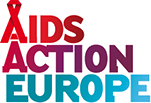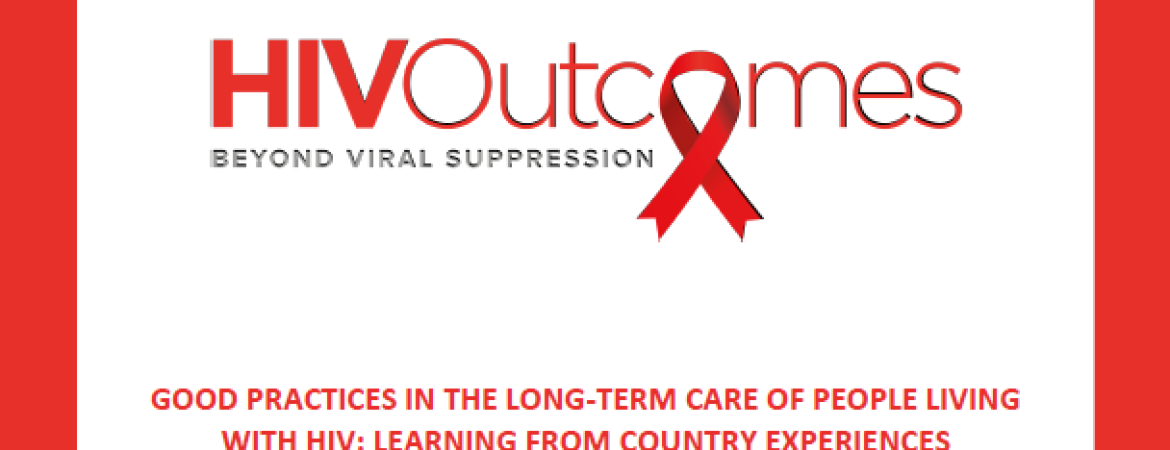HIV Outcomes has launched today an Online Compendium of Good Practices for securing the long-term health and well-being of people living with HIV (PHIV).
Although PHIV can now anticipate near-normal life expectancy, there are unique needs that must be met if their quality of life is to match that of the general population. As life expectancy for pPHIV has increased, additional unmet requirements for good long-term health and well-being have emerged.
The launch event in the European Parliament today highlights the key findings underpinning the Compendium and emphasises what makes these good practices important to people with HIV. The Compendium represents the latest output from work of the HIV Outcomes collaboration, building on the group’s road-testing of its 2017 recommendations on the long-term health, well-being and chronic care of PLHIV in Italy and Sweden this year. Looking at ways to apply the recommendations in real-world settings has provided vital insights into how to ensure they are taken up more widely. The Compendium is a resource that will inspire and support key stakeholders across Europe to meet the specific care needs of people living with HIV for the long-term.
“We cannot afford to be complacent; improvements in life expectancy for people with HIV need to be matched with improved life quality,” said Nikos Dedes, Chair of the European AIDS Treatment Group and Co-Chair of the HIV Outcomes Steering Group. “We know, from the preliminary work in Sweden and Italy, that these recommendations have the capacity to make a real difference. We need to do whatever is necessary to implement these recommendations and make sure that people with HIV in every country can benefit from this knowledge.”
During the event, co-hosted by Members of the Parliament (MEPs) Christofer Fjellner (EPP, Sweden), Karin Kadenbach (S&D, Austria) and Frédérique Ries (ALDE, Belgium), speakers will stress that the needs of people living with HIV go far beyond suppression of HIV. In a joint statement, the three MEPs from across the political spectrum said: “This is a timely reminder that there is more to life with HIV than viral suppression; proper quality of life is equally important. Now that we know what is needed, it is our duty as policymakers to press for changes to secure the long-term health of people living with HIV.” Given the upcoming European elections, the support of such a wide range of MEPs will be essential to keep the needs of people with HIV on the political radar.
During 2018, HIV Outcomes ensured that the recommendations launched last year have been fully tested and are implementable. Having identified the barriers to be overcome, in 2019 the initiative will focus on implementing the relevant recommendations in Italy and Sweden and will work to broaden the roll out of the recommendations across Europe.
For those diagnosed and treated early, HIV is now a long-term, rather than a fatal, condition. HIV Outcomes’ recommendations have been designed to address the needs generated by today’s increased life expectancy, looking to improve health outcomes and quality of life of people with HIV. The launch of the Compendium comes during European Testing Week and just ahead of World AIDS Day on 1 December.
Launch event hosted by Christofer Fjellner MEP (EPP, Sweden), Karin Kadenbach (S&D, Austria) and Frédérique Ries (ALDE, Belgium)
Speakers:
- Vytenis Andriukaitis - European Commissioner for Health and Food Safety
- Mario Cascio - Vice-Chair, European AIDS Treatment Group
- Masoud Dara - Coordinator, Communicable Diseases, WHO Europe
- Giovanni Guaraldi - Head of the Modena HIV Metabolic Clinic, University of Modena and Reggio Emilia, Italy
- Michel Kazatchkine - Special Advisor to Joint United Nations Programme on HIV/AIDS for Eastern Europe and Central Asia and Chair of the Board, AFEW International
- Peter Månehall - Ombudsman, HIV Sweden
- Ellen Nolte - Professor of Health Services and Systems Research, London School of Hygiene and Tropical Medicine
- Peter Reiss - Immediate Past President, European AIDS Clinical Society (EACS) and Professor of Medicine, Academic Medical Centre, University of Amsterdam
- Anders Sönnerborg - Director, Centre for HIV Research, Karolinska Institute
The HIV Outcomes initiative was created in 2016. It reflected a widespread recognition among experts that important issues of health and social inclusion of people living with HIV (PLHIV) receive insufficient attention from policy makers and healthcare providers. The initiative aims to make these elements central to the overall response to HIV.

